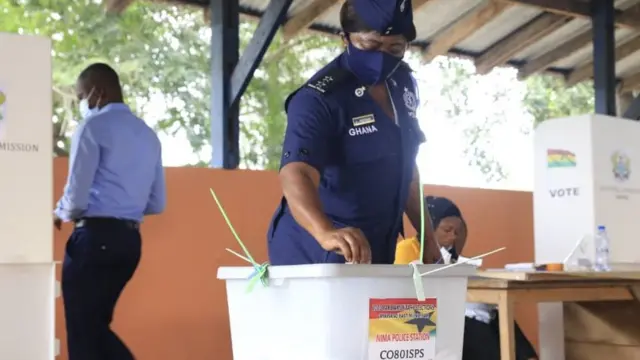adverts
Special voting for the 2024 elections commenced nationwide on Monday, December 2, with polls opening at 7 AM. This exercise enables voters involved in election-related duties on the main polling day to cast their ballots in advance.
In the Navrongo Central Constituency of the Upper East Region, 620 special voters, including state security personnel, Electoral Commission (EC) staff, and media practitioners, are participating.
The voting process began at the Municipal Police Headquarters, where the Municipal Electoral Commission Director, Tetteh Okine, described the process as “fluid.”
adverts
The special voting is taking place across 14 regions, with the Eastern and Western Regions excluded due to a reported ballot paper leak. On Sunday, December 1, EC Chairperson Jean Mensa announced the rescheduling of voting in these two regions to Thursday, December 5, citing security concerns.
“The decision follows a report from National Security about a single defaced ballot paper meant for the Eastern Region that leaked out of the printing house, Rocheck Limited,” Mensa stated.
The defaced ballot paper, though initially marked for destruction, was allegedly removed from the printing house. To uphold transparency and security, the EC recalled and reprinted all ballot papers for both the Eastern and Western Regions, involving three separate printing houses under strict supervision.
About 131,478 voters—0.007% of the total registered electorate of 18,741,159—are expected to participate in the special voting exercise. Eligible participants include members of state security agencies, emergency service workers, Electoral Commission staff, and media practitioners.
This arrangement ensures that these individuals can perform their duties on election day without forfeiting their right to vote.
The EC clarified that the results from the special voting would remain sealed and undisclosed until after the general elections, ensuring the integrity of the process.
As the special voting continues, the EC has reiterated its commitment to transparency and security to safeguard public confidence in the electoral process.


